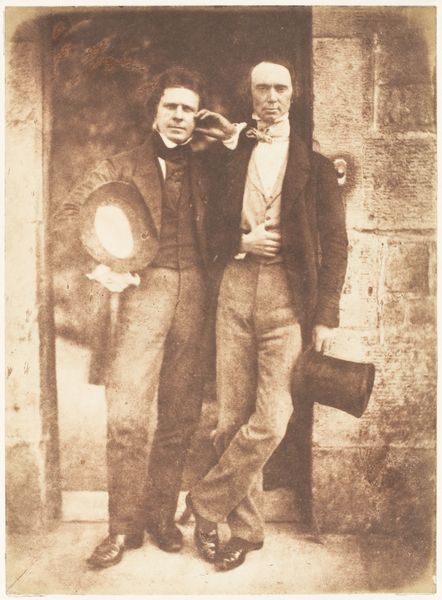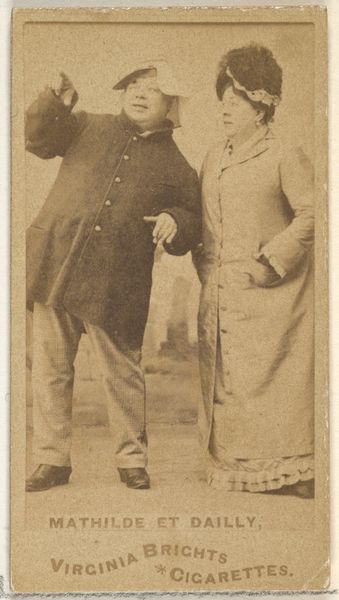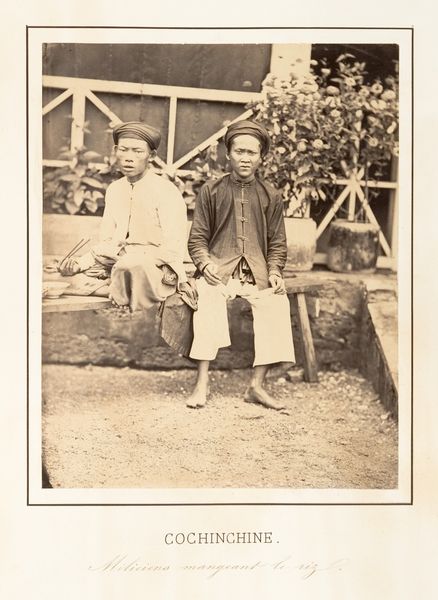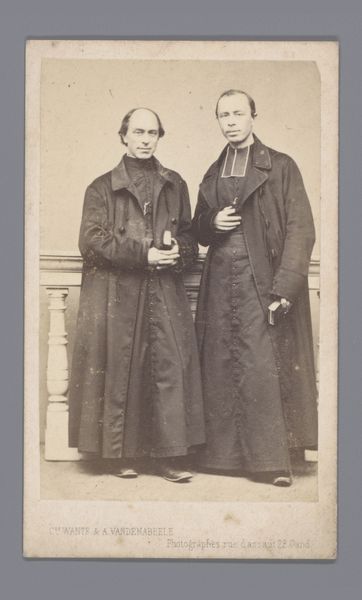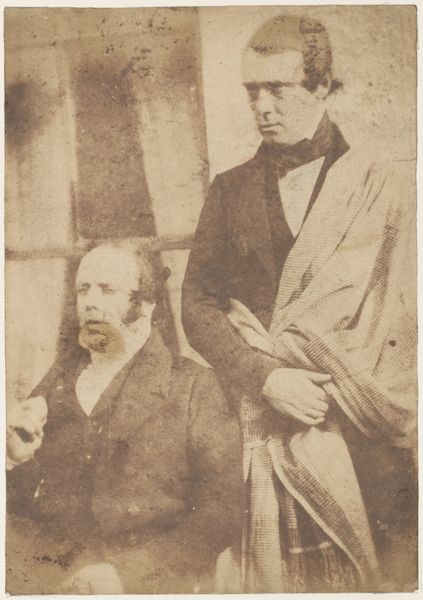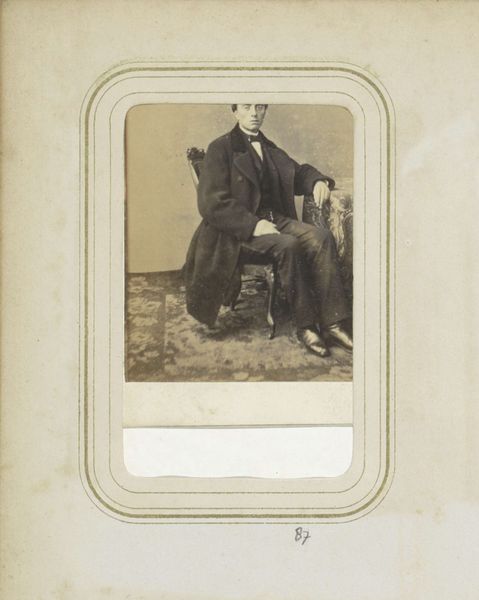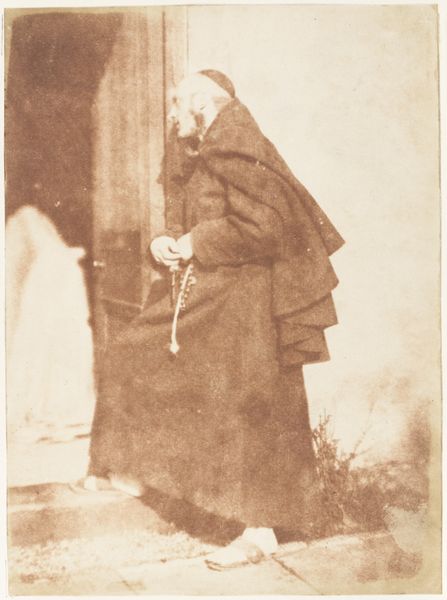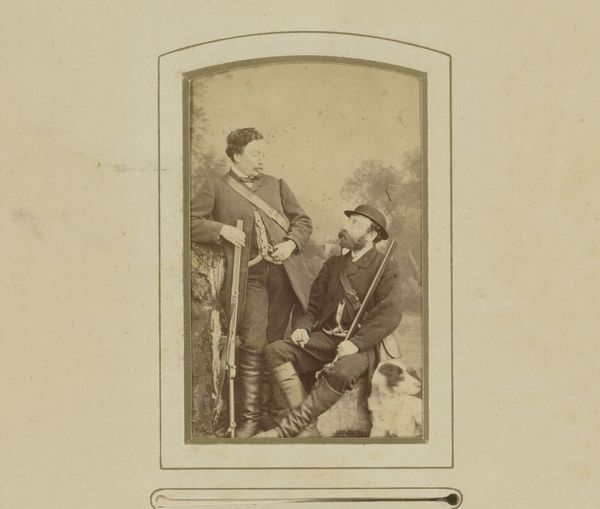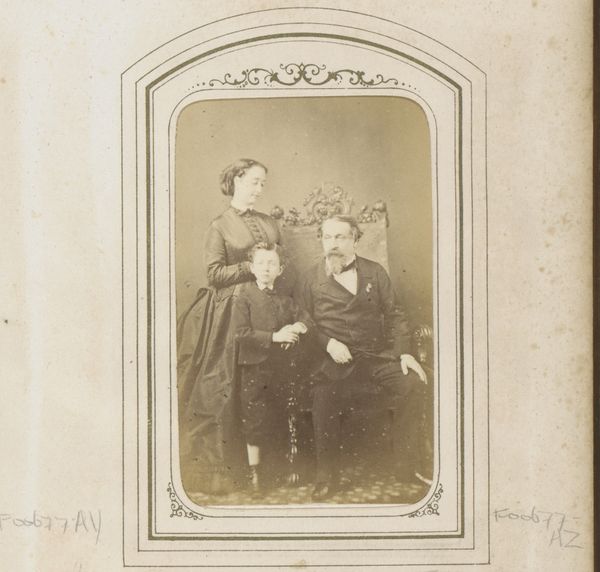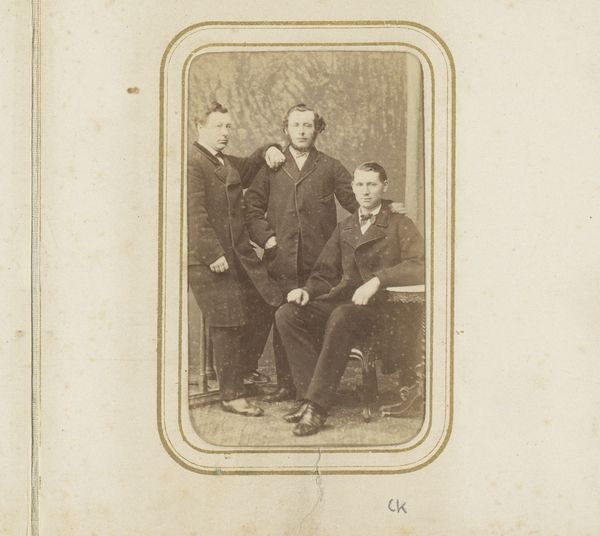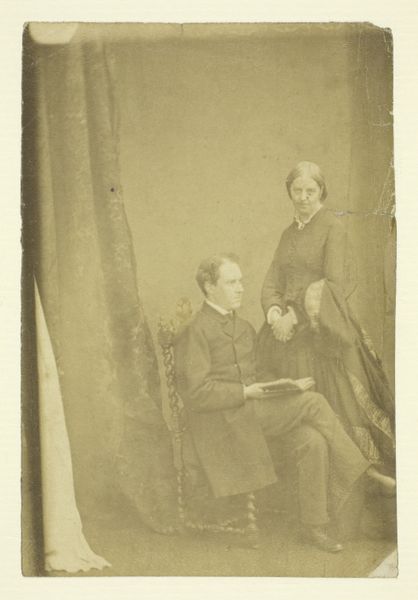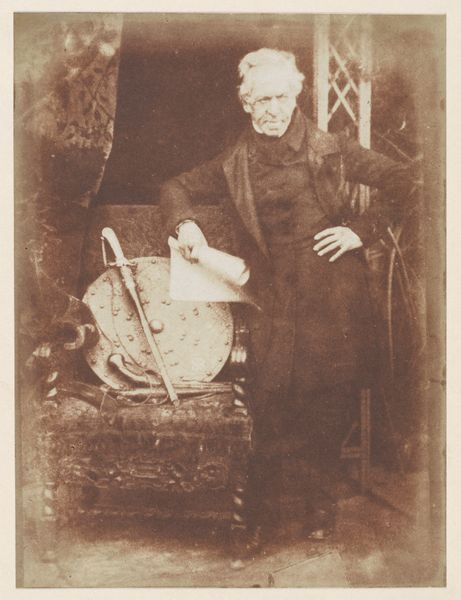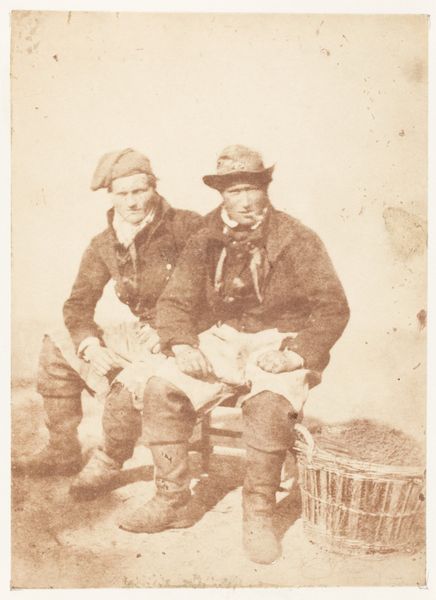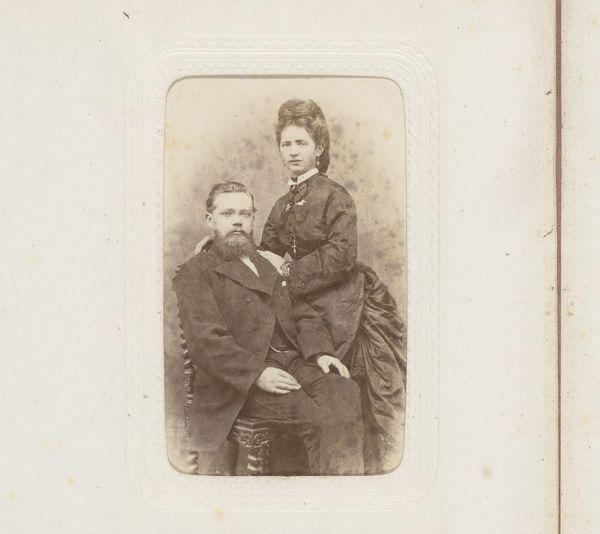
daguerreotype, photography
#
portrait
#
daguerreotype
#
photography
#
romanticism
#
men
Copyright: Public Domain
Curator: This daguerreotype by Hill and Adamson, created between 1843 and 1847, is titled "Symington, Paisley, and Glasgow". It resides here at The Met. What’s your first impression? Editor: Melancholy. The sepia tones evoke a palpable sense of history, but there’s a stiffness too. They look rather…solemn. Curator: Well, consider the medium. Early photography demanded stillness; long exposure times would blur any movement. But there’s more than that at play here. Photography was new and significant, it carried a weight of documentation. People likely felt the gravity of the moment, didn't they? These weren’t snapshots. Editor: That's true, there is that awareness of posterity. What about the men themselves, do we know anything about them? Their pose, the walking stick…it all suggests something. Curator: Absolutely. We can read certain symbols. Notice how one man stands erect, hand resting on the seated figure? This gesture can be seen in other portraits of the era to signal support, solidarity between men who occupied the public sphere, perhaps in politics or commerce. The walking stick would indicate a level of wealth. Editor: Fascinating how gestures acquire such fixed cultural meaning! I notice that window or doorway behind them is blurred, featureless really. Is there anything to read in that stark background? Curator: Indeed. Perhaps Hill and Adamson aimed for simplicity so the figures emerge unencumbered. Focus entirely shifts to the subjects as symbols of civic life and status. Or perhaps, simply, the setting wasn't their focus. These portraitists were artists with an eye towards romanticism, that meant subjects and how to pose them. It does not necessarily denote social theory, eh? Editor: A fine point! I can appreciate this as an early effort at portraying influential figures with a sense of authority. They certainly look like individuals invested with their role in society. Curator: Precisely. Through light, shadow, and carefully considered poses, a visual language of Victorian ambition emerges. Editor: It seems such a fragile yet evocative medium, this daguerreotype. Almost ghost-like now, yet so firm in its record of this fleeting instance of two individuals presented for posterity. Curator: Photography capturing memory. Exactly so.
Comments
No comments
Be the first to comment and join the conversation on the ultimate creative platform.
